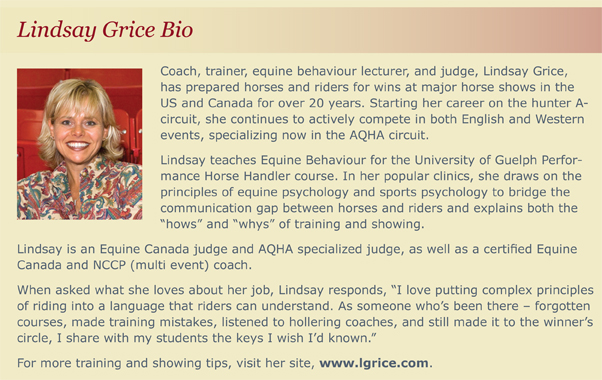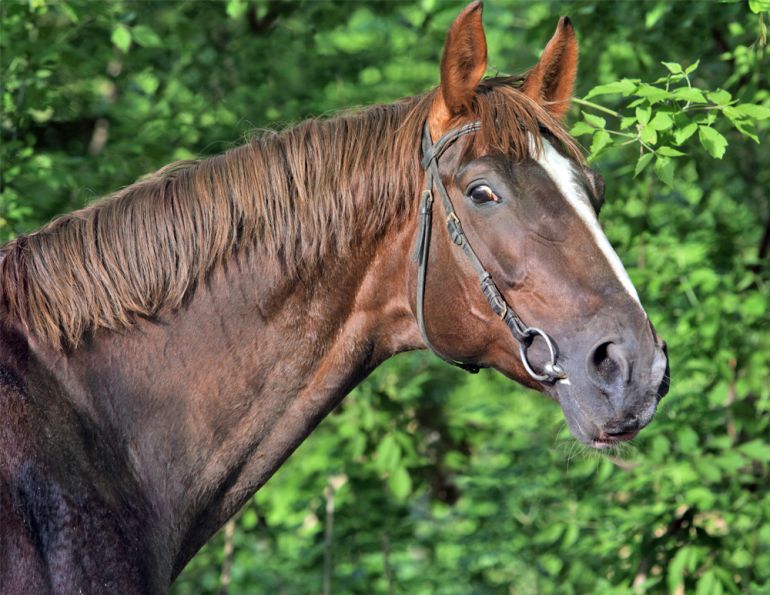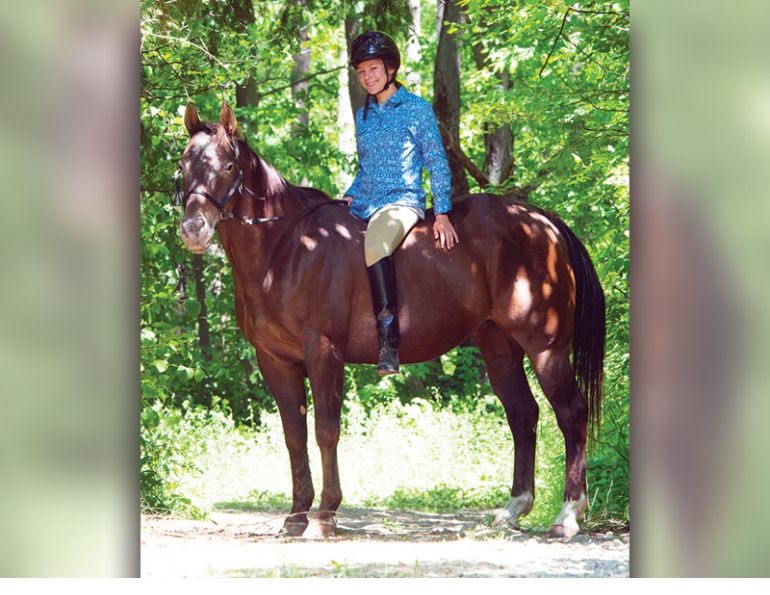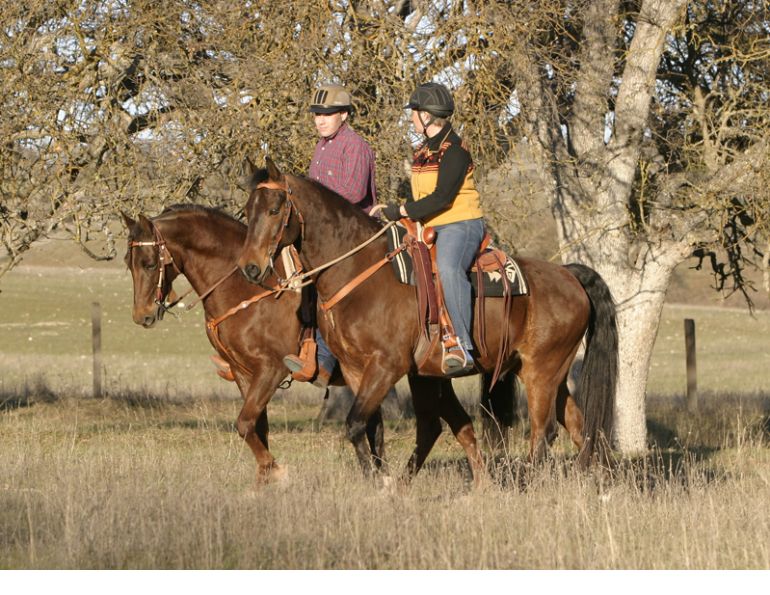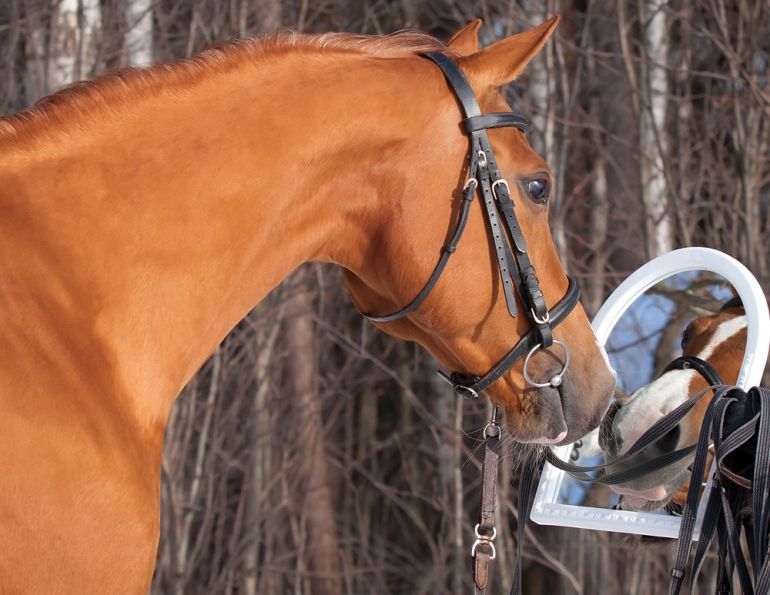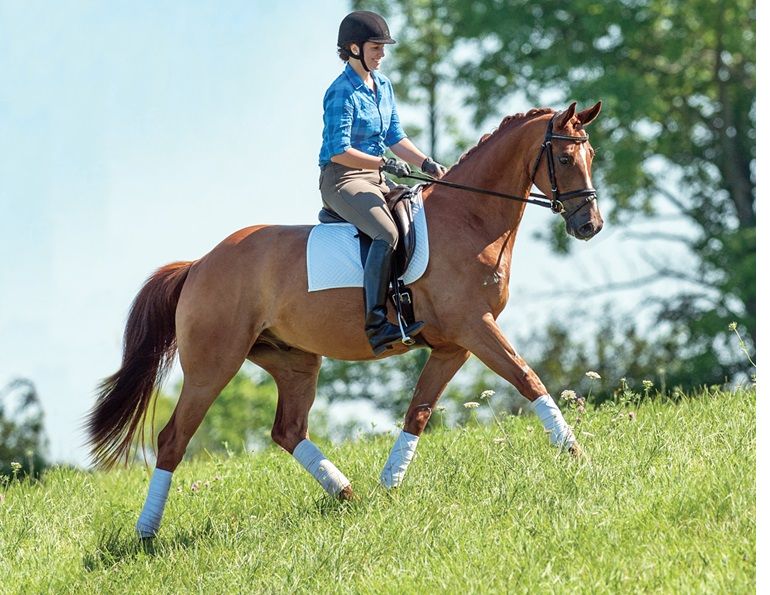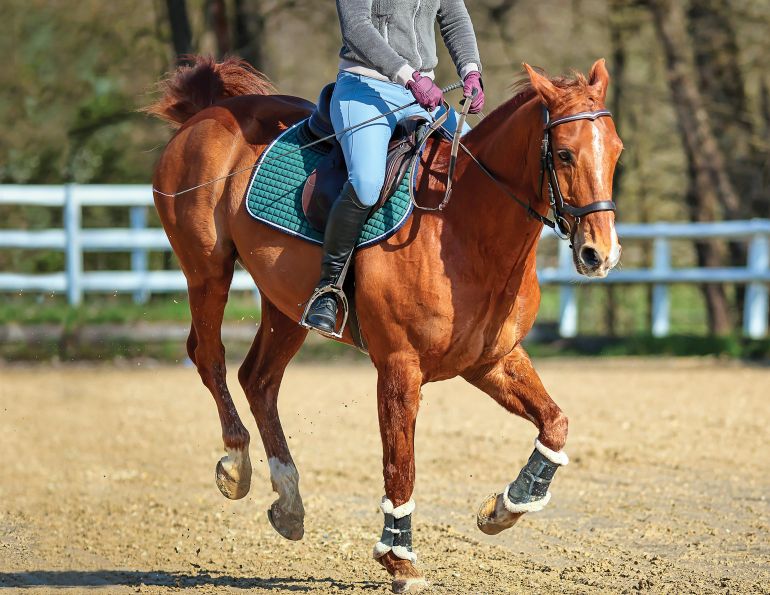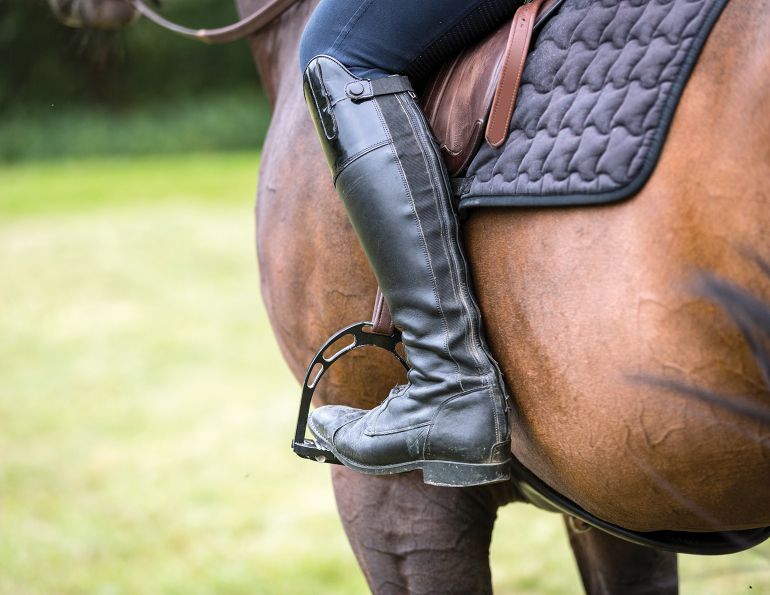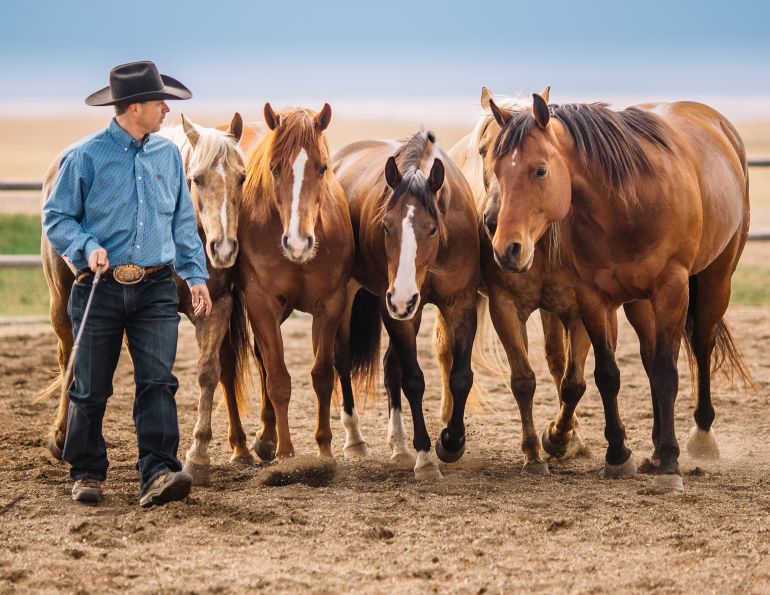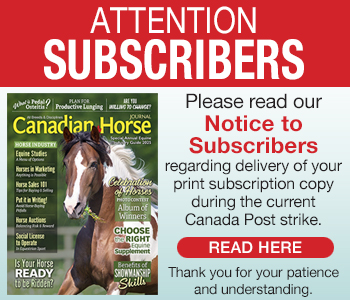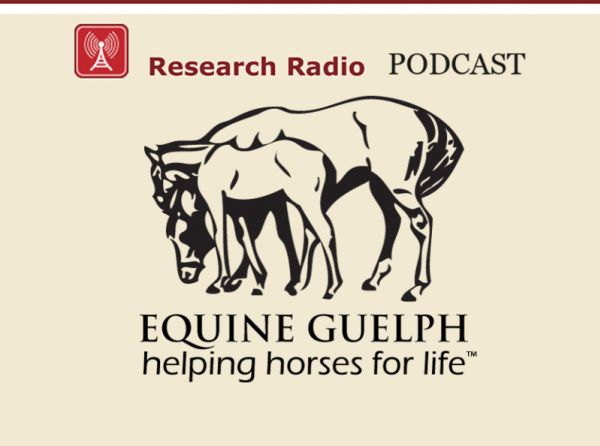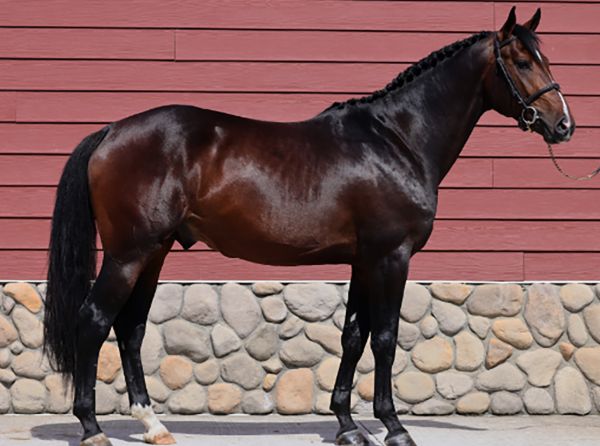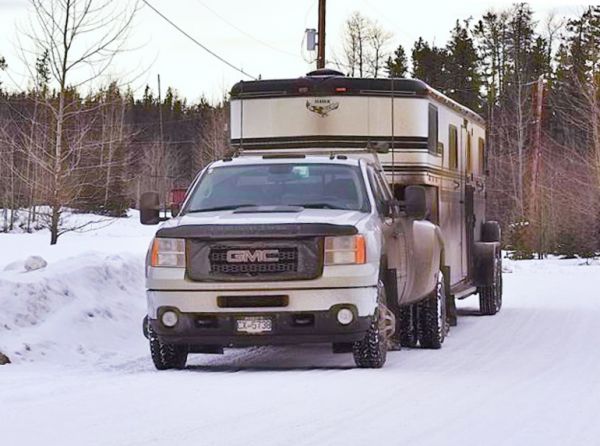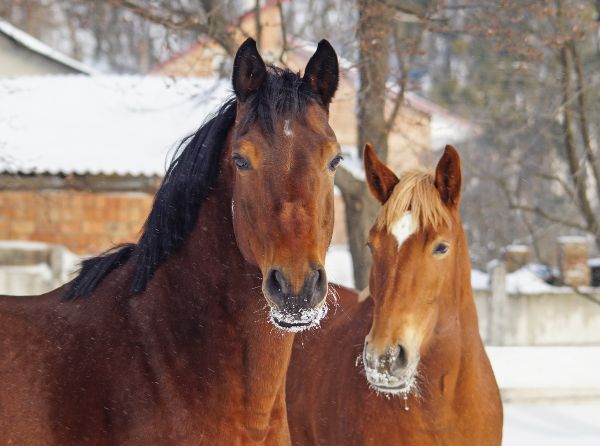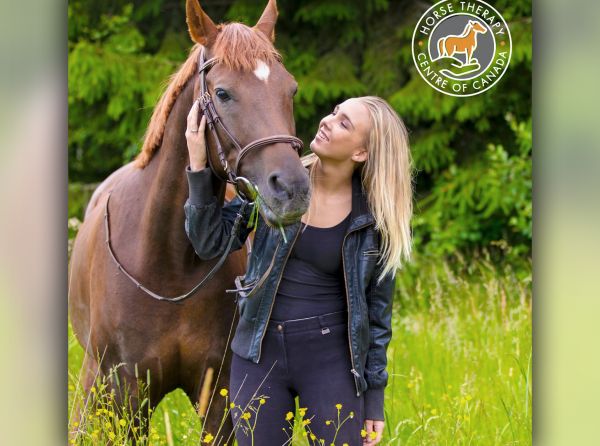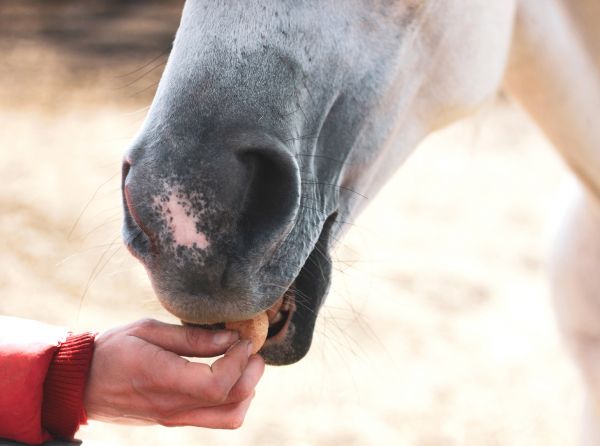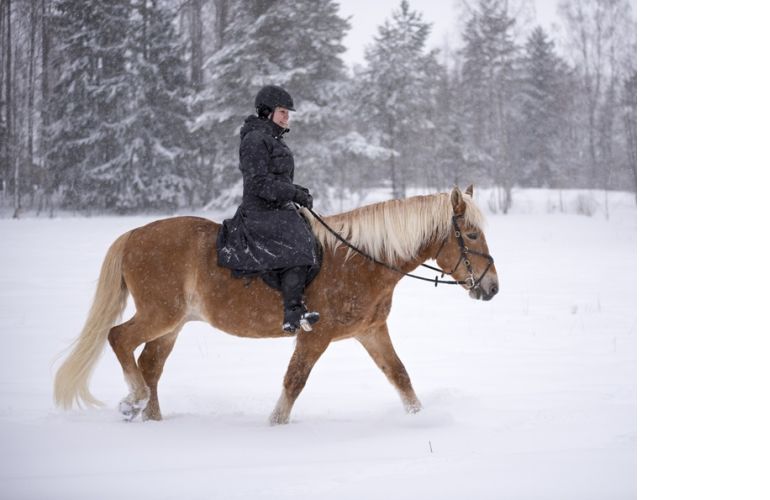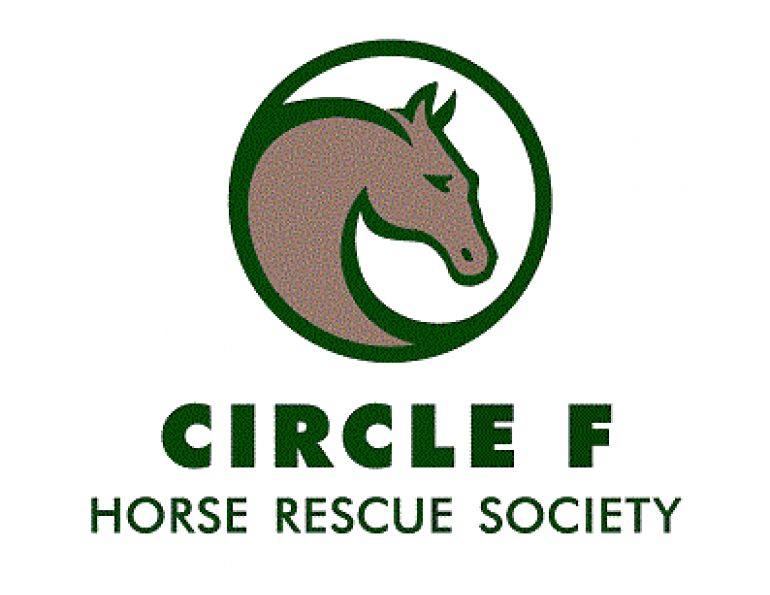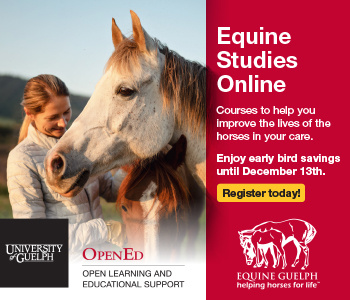By Lindsay Grice
Q My gelding is great to ride and has lots of personality but can be frustrating to work with on the ground. He’s always trying to nibble at the lead shank and my hands. I became very concerned yesterday when he actually nipped my husband while he was holding him. He’s not mean, just playful, and never bit anyone before. What should I do?
A I’ve come to realize that when people say their horse has “lots of personality,” they usually mean he is the busy, mouthy kind that likes to play with people’s jackets, cross-ties, broom handles, etc. Nibbling isn’t cute, however, and, as you discovered, can quickly turn into biting.
You’ve probably seen two geldings sparring and playing “halter tag” with each other out in the pasture. If you allow your horse to rub or nibble on you, you become his equal rather than the herd leader. In the horse’s hierarchy system the leader doesn’t allow subordinates to play with her or invade her personal space. The underdogs are always respectful and attentive to the leader and wait for her to make the decisions.
Recognize the warning signs in your horse before a bite ever happens. It always begins as a thought. If he’s the dominant type, he may put his ears back or toss his head in your direction. Do you step back? This would indicate to him that he can influence you.
If he’s the playful type, you’ll see him test the boundaries of your personal space, maybe with a “test touch” as if to say, “Who’s the alpha here? Are you going to react?” Instead, ask him for a skill that will replace his thought with the idea that you are in control. Ask him to yield to pressure in some say – to move over, lower his head, or back up.
Keep your hands out of temptation’s way. Imagine your horse’s head in a box and stay out. I don’t ever let my horses touch or rub on me — I’m off limits. Be consistent. Don’t allow him to nibble on you (or perhaps let friends or family play with his muzzle) and then punish him for doing the same thing at horse show time. I feel that feeding treats or any between meal snack only makes a horse with an oral fixation worse. I personally never feed my horses treats.
If he does bite, you must treat this aggressive action with an aggressive reaction. It’s the language horses understand. Discipline him in a way that will sting and scare him. This cannot be a half hearted slap which he will only interpret as a game. I might assertively back him up or smack his chest with my whip. Avoid constant jerking on his chain as this just irritates a horse. Make sure that the discipline follows the offence within a second. Afterward, don’t hold a grudge — just carry on as if nothing ever happened. The aim is education, not vengeance. This is the way the herd leader would react if another horse bit her, or the way a mare would keep her foal in line if he got a little cocky.
Main article photo: Dorothy Puddester - If you allow your horse to spar with you by nibbling and being mouthy, he’ll think of you as an equal like his pasture playmate, rather than as his herd leader. If he does bite, discipline him smartly within a second, and then afterward carry on as usual and don’t hold a grudge.




